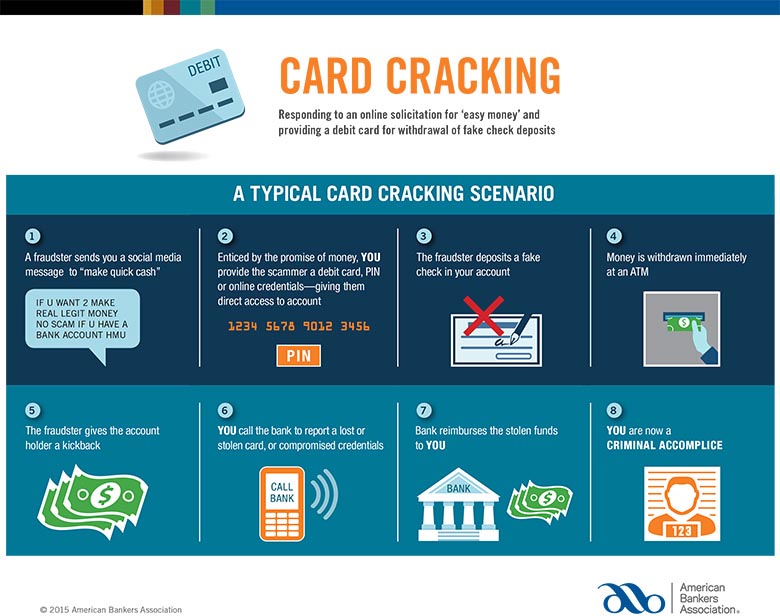Card Cracking Scam: Easy Money Isn't Always Easy
We have all probably seen examples of a card cracking scam without even knowing it. They are everywhere nowadays with people looking for alternative ways to supplement their income in order to keep up with rising costs. Let's review what card cracking is and how we can avoid becoming a victim.
"Card Cracking" is a form of fraud where a person will respond to an online solicitation either through a social media on Facebook, Instagram, Twitter, an email, or even a text message, offering "quick cash" or "easy money" and requires you to provide debit card information for withdrawal of a fake check deposit. Once the fraudster has your account information they will deposit a fake check into the account and withdraw the cash with promise of a kickback to you for your assistance. The fake check deposit will bounce leaving you with a returned item fee and no kickback from the fraudster. Now you must report the card to your financial institution as stolen and be issued a new card. If you file a dispute for stolen funds to be reimbursed, you become an accomplice to the fraud occurring.
Tips to avoid becoming a victim:
- Ignore spam messages claiming to earn you easy money.
- Never give out card or account information to an untrusted source.
- Report spam posts on all social media platforms.
- Report spam texts and then block the phone number.

Share This Blog Post
Related Blogs View More
Telephone Scams Are Back And More Dangerous Than Ever
Once overshadowed by sophisticated cyberattacks, telephone scams are making a bold comeback, and they’re catching people off guard. Here's what you need to know to protect yourself.
Read MoreOld Scam With A Scary New Name
A dangerous and emotionally manipulative type of scam is targeting people all over the world through dating apps, social media, and text messages called “Pig Butchering” and yes, the name is as disturbing as the scam itself. In this article, we go over important red flags to be on the lookout for and tips on how to protect yourself from potential “Butchers”.
Read More